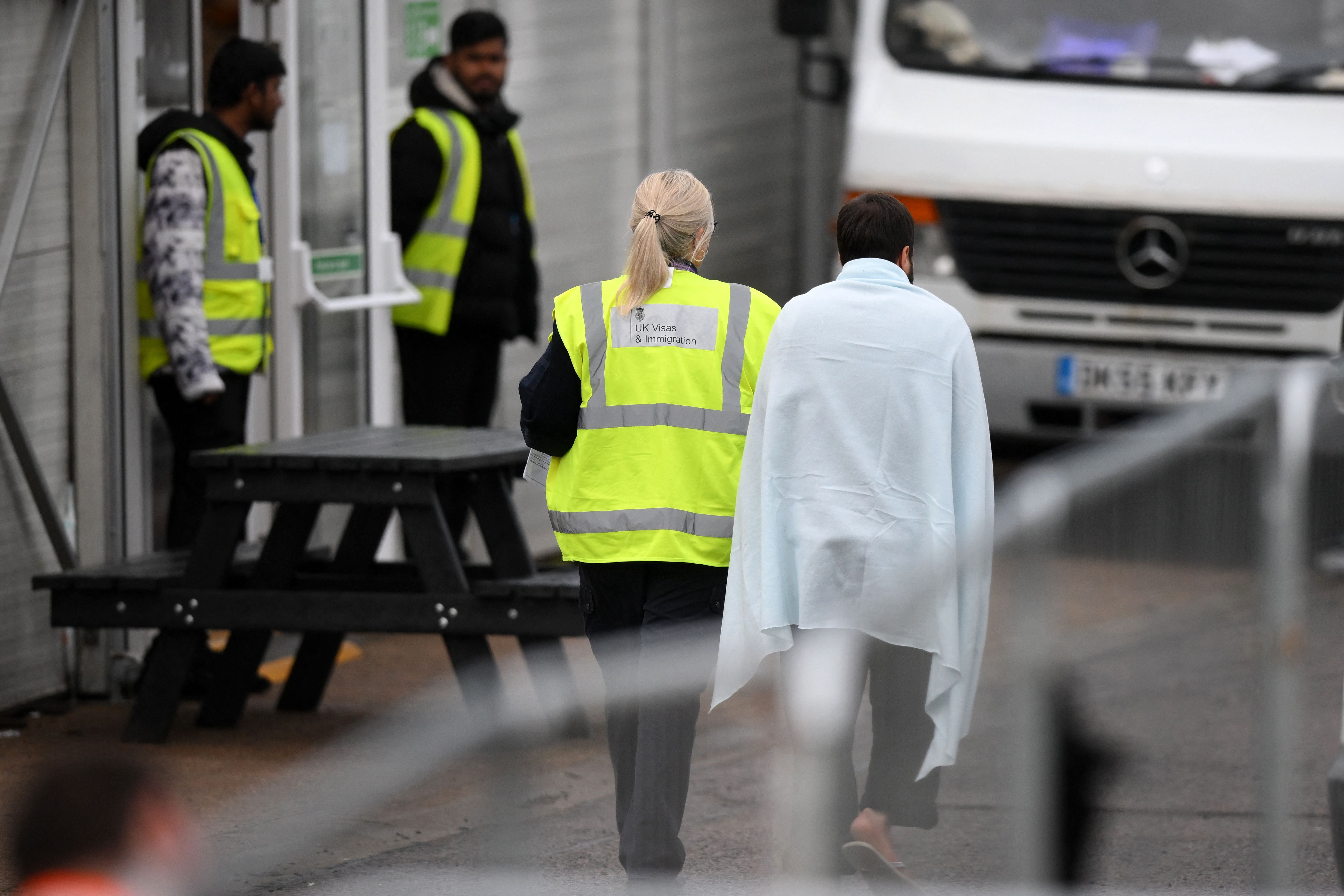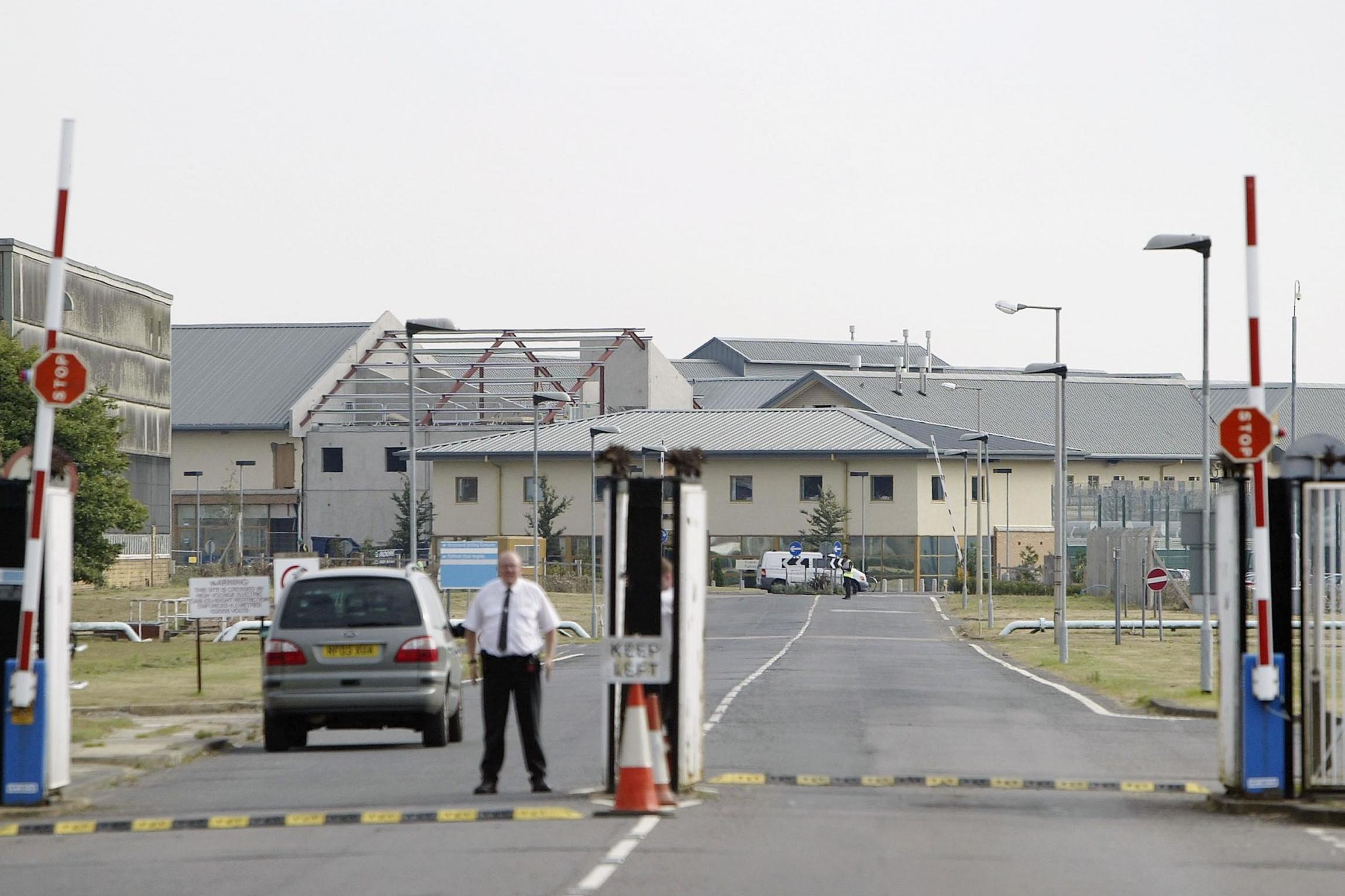Catalogue of failings in Home Office’s ‘flawed’ asylum system revealed in UN report
UN Refugee Agency uncovers cases in which trafficking victims were missed and a child victim of sexual abuse was given no support

Your support helps us to tell the story
From reproductive rights to climate change to Big Tech, The Independent is on the ground when the story is developing. Whether it's investigating the financials of Elon Musk's pro-Trump PAC or producing our latest documentary, 'The A Word', which shines a light on the American women fighting for reproductive rights, we know how important it is to parse out the facts from the messaging.
At such a critical moment in US history, we need reporters on the ground. Your donation allows us to keep sending journalists to speak to both sides of the story.
The Independent is trusted by Americans across the entire political spectrum. And unlike many other quality news outlets, we choose not to lock Americans out of our reporting and analysis with paywalls. We believe quality journalism should be available to everyone, paid for by those who can afford it.
Your support makes all the difference.A devastating catalogue of failings in the Home Office’s “flawed and inefficient” asylum system has been uncovered in a damning UN report.
The eight-month audit of the UK’s asylum system by the UN Refugee Agency (UNHCR) picked apart the government’s immigration policy to reveal a deeply dysfunctional department.
The 200-page report found that children were wrongly detained as adults, trafficking victims were potentially missed, vulnerable people were locked up, and laws and government policies were violated.
It concluded that:
- Officials had “inadequate training” and interview skills to identify victims of torture, trafficking and rape
- “Incomplete, inaccurate or unreliable” information was being taken from asylum seekers
- Children were being accused of lying about their age by officials with “no formal training or guidance”
- Home Office staff were wrongly discouraging people from claiming asylum, or trying to persuade them to withdraw claims
- Asylum seekers were being “left in limbo at a higher cost” to the government because they were deemed ineligible after passing through safe countries
The report, in which Home Office staff told of their “frustration” that government policies were slowing down the system and driving up costs, comes a day after The Independent revealed that officials were considering strike action over the plan to deport people to Rwanda.
Yvette Cooper, the shadow home secretary, said the report “exposes a host of failures” in the initial processing of asylum seekers – failures that are holding up the system and contributing to the damaging delays.
“The home secretary needs to stop posturing and start fixing the asylum system she and her party have broken,” she told The Independent.
Jon Featonby, the Refugee Council’s chief policy analyst, said men, women and children are already being “left in limbo for far too long”.
“The Illegal Migration Bill will potentially leave hundreds of thousands of people in a permanent state of limbo, unable to get on with their lives,” he added.
“If the government is serious about tackling the asylum backlog and reducing the number of people making dangerous journeys to get to the UK, it needs to urgently change direction. Instead of this unworkable and unprincipled plan, the focus should be on giving people a fair and timely hearing in the UK, and creating more safe ways for people to arrive.”
The following are among the harrowing cases revealed by the UNHCR.
Tortured child asylum seeker treated as adult
A teenager arrived on a small boat on 1 July 2021 and was assessed as “clearly over the age of 25” by an immigration officer, despite telling them he was 17.
Official notes on a Home Office database said: “My initial instinct was that the applicant is significantly older than 17. Based on his size, hair, skin, behaviour and my experience I was not satisfied that he is the claimed age.”
Without any formal assessment, the applicant was transferred to Yarl’s Wood Immigration Removal Centre for detention.
When a screening interview was conducted by a member of a separate Home Office unit, the boy said he had “suffered a lot through my journey”, including being tortured, and had nightmares and blackouts. He also said he had a brother in the UK.
When an age assessment took place four months later, the Home Office accepted he was 17, and he was granted asylum in July 2022.

Young girl not helped after sexual assault reported
The UNHCR observed a screening interview in which a female asylum seeker reported that her young daughter had been sexually assaulted shortly before they had arrived in the UK.
The mother said that the child – who was asleep on the floor of the interview room at the time – was clearly traumatised, not sleeping properly, and constantly biting her nails.
The woman had requested an interpreter, but none was provided, and she struggled to recount the incident.
She said her daughter had been attacked after going to a bathroom, telling the Home Office official that men “took her to the dark room and made some not good touch”.
The UNHCR said a safeguarding team did not follow up the report or attend to the child’s welfare.
Unaccompanied child found to be over 25
In November 2021, a teenager was sent to a hotel for adult asylum seekers, but said he was a minor on arrival and was put in a taxi back to the Kent asylum intake unit.
A Home Office official had assessed him to be over the age of 25, but the boy gave his year of birth as 2004.
When he was told about the age assessment at a later interview, the UNHCR said, the asylum seeker “looked very surprised and pointed to his thin arms and his lack of facial hair”.
When the UNHCR asked the official how age assessments were made, he said he had received no formal training but believed that “adults are more ‘confident’ and ‘aggressive’, and adolescents more ‘angsty’”. The applicant was later accepted to be a child.
Potential trafficking victims not followed up
The UNHCR said it had directly observed several cases in which indicators of trafficking or exploitation were not followed up, including a man who said he had been imprisoned and forced to work in Libya, a Vietnamese woman whose case was flagged but who then disappeared, and two others who described being subjected to violent abuse by their smugglers.
Children as young as 12 sent to adult detention centres
Home Office staff told the agency that children and vulnerable adults were “regularly sent” to detention centres in violation of Home Office policy.
“We were told by officers there was a child of 12 sent to Yarl’s Wood for detention,” the UNHCR said.

Home Office official allows woman’s ‘husband’ to answer safety questions
The UNHCR warned that a lack of training among those interviewing people who could be victims of domestic violence or other abuse was creating serious risks.
In one asylum interview its officials observed, an “experienced” interviewer allowed a man whom the claimant had identified as her UK-based husband to remain present throughout the interview.
The report said he spoke to the woman in a different language without translation, “put his hand on her arm when she was preparing her answers” and when asked if she was safe in her accommodation, gave a “thumbs up” sign before the woman answered.
The only phone number taken from the claimant was that of the man, but a formal note recorded “no safeguarding concerns”.
Asylum seeker’s request for interpreter refused
The UNHCR said in one observed interview where a claimant had asked for an interpreter, a Home Office official “refused on the basis that the claimant had come to the UK on a student visa which required knowledge of the English language and so she should not need one”.
The claimant explained that she felt uncomfortable continuing in English, and later “could not find the right word to describe an important detail”.
She said she had had difficulty understanding all the questions, but the official said it “would not matter”.
The asylum seeker’s request for an interpreter and concerns were not recorded, and a transcript falsely claimed that she answered “yes” to the unasked question: “Are you able to conduct an interview in English?”
Interpreters guiding interviewees
The UNHCR said it had also observed some interpreters taking a role “significantly beyond interpretation”, guiding asylum claimants, engaging in conversation with them without translating it for Home Office officials, and even arguing in some cases.
When one interpreter was meant to put a series of security questions to a man, they told him: “Answer ‘No’ to all these seven questions you have.”
The UNHCR warned that a widespread perception that asylum seekers would respond by saying “No” to all of the questions about security and criminality meant that these questions were not properly asked or their answers recorded.
A Home Office spokesperson said: “This report is based on an audit that took place in 2021 and early 2022. Since then, significant improvements have been made to the processing of small boats arrivals. Specialist facilities have been made available to accommodate young people, including unaccompanied asylum-seeking children.
“Our staff are working relentlessly to safely register and screen unprecedented numbers of migrants arriving in the UK illegally. We are pleased that their professionalism was praised and thank the UNHCR for their report.”



Join our commenting forum
Join thought-provoking conversations, follow other Independent readers and see their replies
Comments